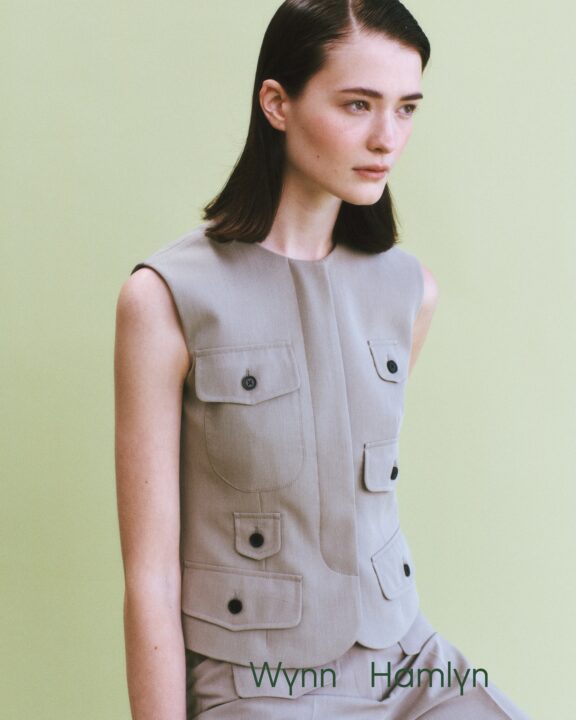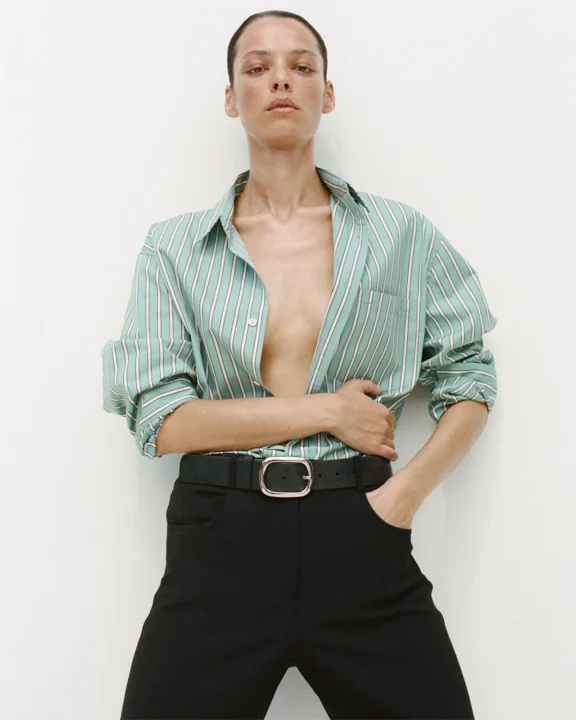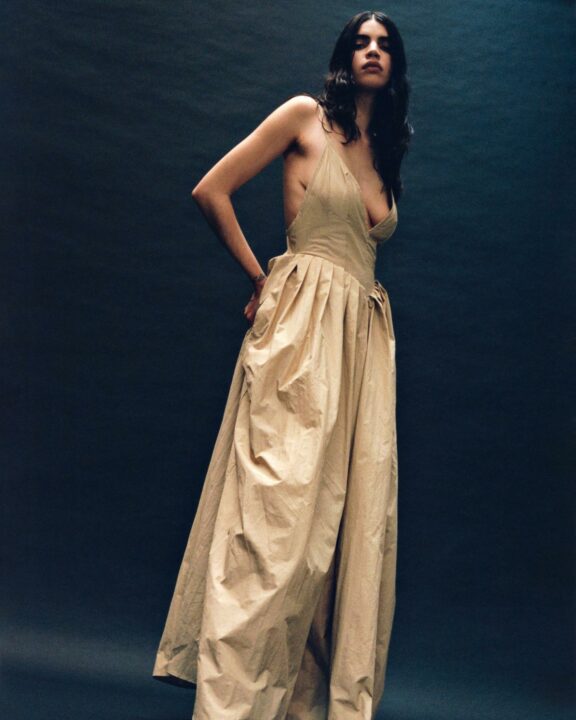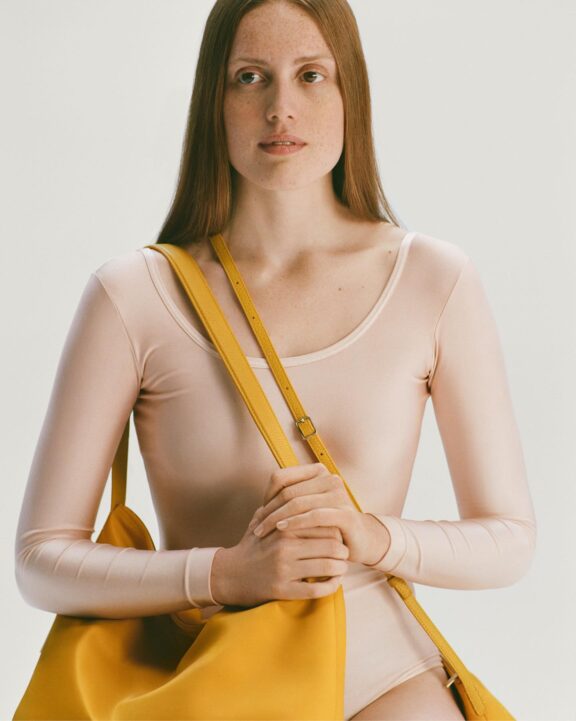In Conversation With: Natalia Corre of Advance Copy In a time where independent voices aren’t just welcome—they’re essential—Natalia Corre of Advance Copy is carving out space for a different kind of conversation in fashion.

With experience inside legacy fashion houses and emerging creative studios such as Cecilie Bahnsen and Neous, Natalia works at the intersection of creativity and strategy. She offers a unique perspective grounded in the primary pillars of authenticity, financial stability, and well-being to growing brands.
In this conversation with PILOT Director Ash, Natalia shares insight into her path so far, the thinking behind Advance Copy, and what she sees as the real foundations of a fashion brand in 2025.
We are writing from different corners of the world. Would you mind telling us where you are right now?
I’m based in Berlin and writing this from my outdoor studio, aka the local Rose Garden where I go regularly to ponder on new ideas for my clients or read a book while my baby sleeps next to me. Blossom season just started — it’s the most beautiful time of the year as the city bursts into colour and Berliners awake from months of hibernation.
You have worked with a range of globally renowned fashion labels, including Dries Van Noten, Cecilie Bahnsen, and Neous. I would love to hear more about your background and professional journey that led you here. Have you always been interested in fashion?
I was always interested in art and business, but Sex and The City had a huge impact on my career decision. Watching this show was escapism from the beautiful but conservative British town where my family immigrated to. I never felt like I fitted in, but SATC showed me that it was cool to dress differently and that women can be funny, strong, individual.
At 15 I got an internship at Alexander McQueen in London (I didn’t disclose my age), and the following years at Stella McCartney, Yohji Yamamoto. Thanks to these internships I secured a place at London College of Fashion to study Fashion Management, which led to a year in Paris interning at Victor & Rolf and Maison Martin Margiela, and landing a freelance job at Balenciaga as a wholesale showroom assistant.
The crazy world of wholesale fit me perfectly: working with international colleagues and clients, thinking strategically, being surrounded with the highest quality clothes plus having a schedule which never got boring. This mix of factors has made it pretty impossible for me to find another career which is as exciting.

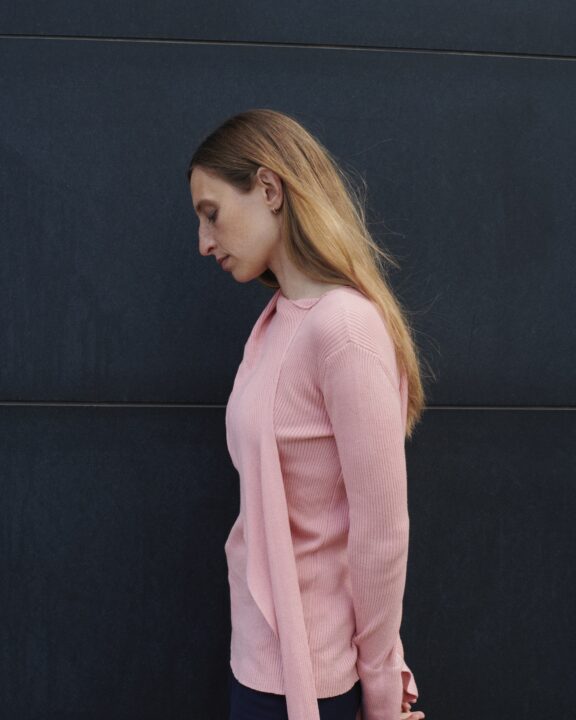
Could you talk us through your overall vision for Advance Copy? How did it begin, and where do you see this latest iteration going?
Moving to Berlin in 2015 came with many realisations. Mainly, that the industry was changing thanks to the rise of innovative DTC brands. I decided to document this movement as it felt so fresh, empowering and representative of a diverse world of fashion. That’s how Advance Copy started, it brought together my love for growing the global reach of unique brands while also sharing practical accounts of owners who were dismantling and changing the system.
The project encompasses consulting, podcast, book Growing Independent Fashion Brands, tiny expert workshops and university lectures. This month, I’m excited to launch on-demand audio consulting and instinctual insights on Substack and Apple Podcasts to help even more founders grow beautiful brands in any corner of the world.
My aim is for Advance Copy to be a company which represents and supports the most pragmatic independent brands and elevates them to be as respected and admired as any heritage Maison from Paris or Milan.
You have worked with and had conversations with a range of successful brand and boutique owners. What do you believe are the key ingredients to building a successful fashion brand in 2025?
- Courage to stand out and rebel against what the fashion industry has dictated as the “right way” of building a company.
- Changing expectations (from early 2000’s) about what “growth” and “success” actually means and entails in the long run.
- A radically honest vision; this takes a lot more soul searching than people think.
- A personal yet respectful visual language and awe-inspiring communication.
With Advance Copy, you explore the intersection of creativity and business. What do you believe is the secret to balancing both worlds in the fashion industry?
From observing and collaborating with brands which are driven by a genuine vision, I’d say that the secret is a courageous founder(s) who truly knows the essence of their art, and has the support of equally visionary and open-minded colleagues across sales and marketing who understand how to translate this essence through radically creative business decisions.
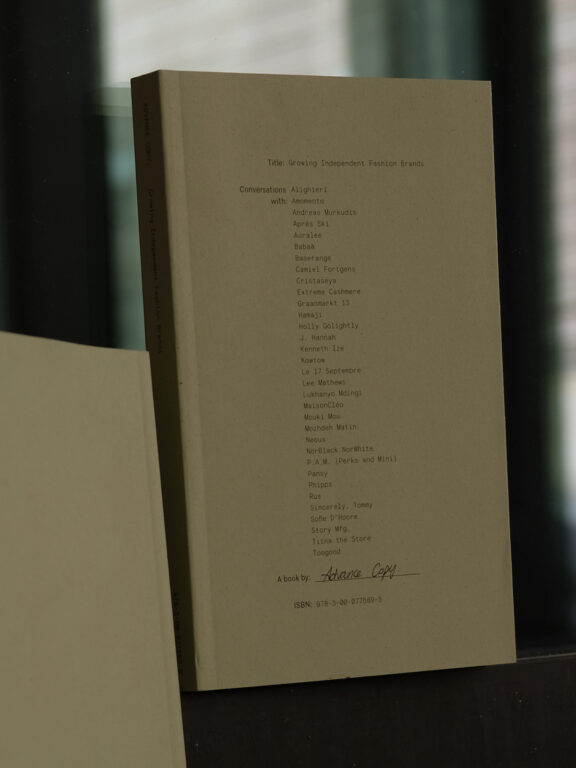

How can brands ensure that authenticity and clarity of brand values remain at the forefront as their business grows and evolves?
Having a strong vision is great but it’s meaningless if it’s not applied across all parts of the business. From the start, founders and their teams should get in the habit of not compromising on their values out of fear of not fitting into a broken industry system.
Being confident in saying “no”, and aligning decision making with your belief system, will help to make sure that your authenticity doesn’t suffer erosion over time.
At the start, many designers/founders think that they can tweak the foundations of their company as it grows but unfortunately that’s often not the case: once the business is up and running there is no time and you can’t turn back because many decisions will be out of your hands or will be made for you.
How do you feel about the overarching shift towards direct-to-consumer (DTC) sales over traditional retail? Have you seen this lead to more thoughtful & financially stable brands?
Whether a brand chooses DTC or wholesale, or both, or even a cocktail of different experimental sales methods (there are so many!), the truth is that these are channels and it all depends on how you use them.
Neither will bring you financial stability or exposure if rational and creative decision-making is not applied.
Which channels are the best at representing your brand voice, supporting you financially and reaching the customers who’ll appreciate your unique work? These are just a few questions to ponder on before making distribution decisions.
What should brands consider when considering wholesale partnerships for growth?
Does this retailer have a clear vision, unique branding or a strong message of their own? aka do they have a clear purpose which resonates with your work and do they know who their customers are and how to attract them in interesting ways.
Ask around to see if they pay on time and if they are pleasant to work with.
Are they based in a region which fits with your brand culture? Are they in an area which you’d like to establish your brand in long term: it’s more efficient to focus on growing brand awareness in a few regions rather than spreading thin across the globe.
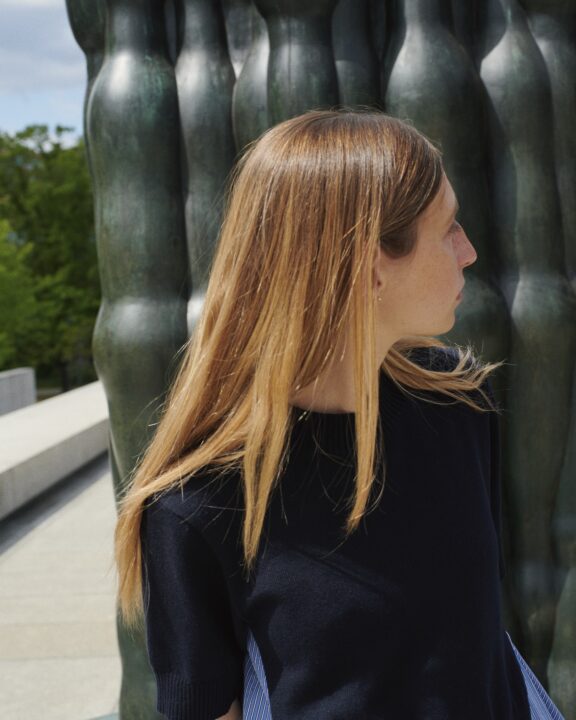
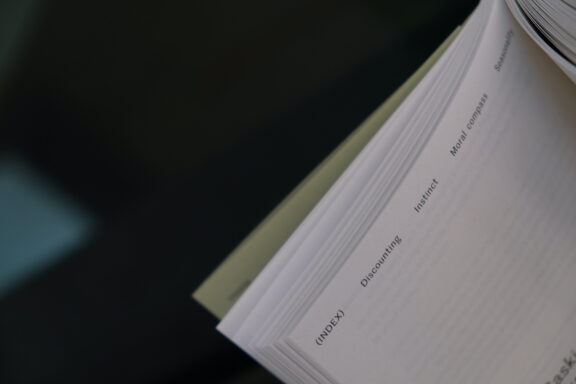
What industry barriers prevent independent fashion brands from growing in a sustainable, conscious and financially stable way?
There are so many. One example from my personal experience is conglomerate brands and PR agencies gatekeeping retail and media space.
Throughout your career, what’s the most important lesson you've learned so far?
Uncovering what truly matters to you outside of the fashion industry’s ego, then exercising and trusting your instincts.
Which brand or boutique owner would you love to be your next interviewee & why?
So many! An interview I’d be fascinated to have is with Lemaire founders, Sarah-Linh Tran and Christophe Lemaire, and their Japanese conglomerate owner, Fast Retailing. Or Margaret Howell and her label’s Japanese ownership company TSI Holdings. I’m looking for a healthy example of a brand/investor relationship and think these two might be good role models for others.
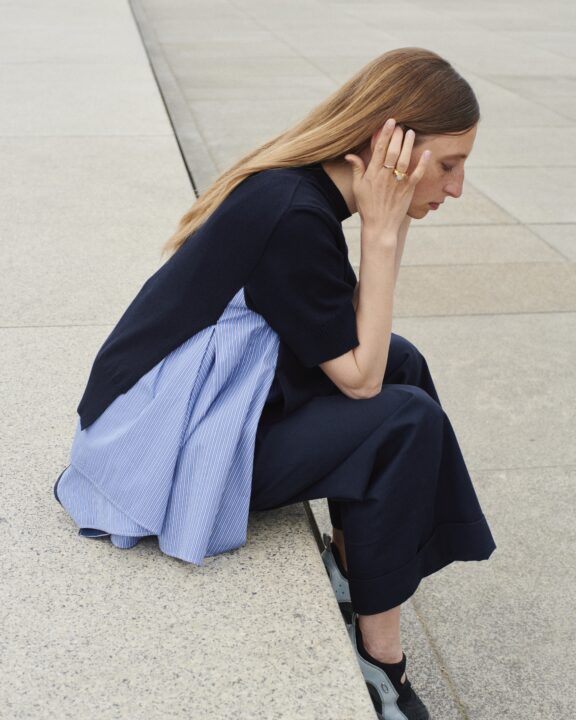
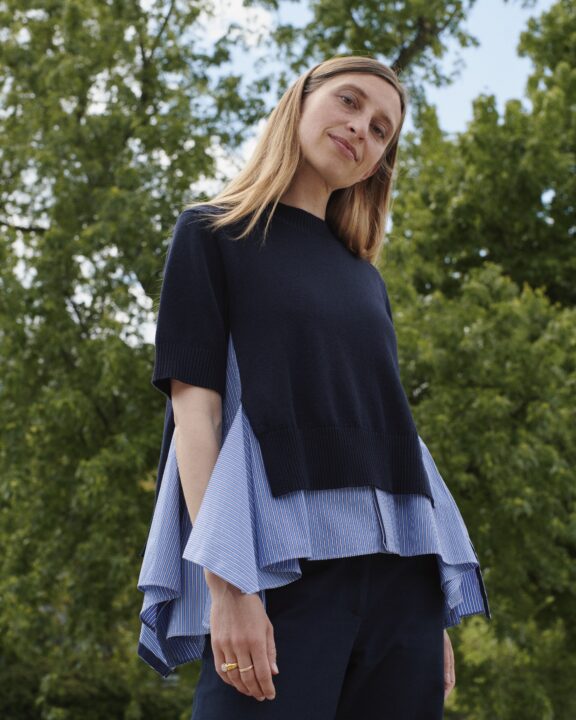
At this point, how do you define growth and success in the Anthropocene?
Thank you for turning the table around with this question from my book! My definition would be for Advance Copy to continue supporting independent brands in reaching their visions and to contribute to the change in customer behaviour towards appreciating a diverse world of high quality goods.
Success for me would be doing this in a financially stable manner from a studio which is based in nature allowing me to host clients for strategic meetings in a garden.
